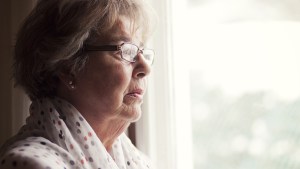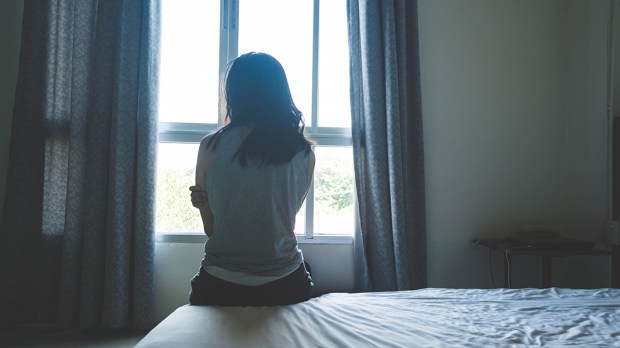What are the ethics of large-scale quarantines?
At the outset, I have to acknowledge that I am writing as a Catholic moral theologian and bioethicist who has learned much from the philosophical and theological synthesis of the great Dominican saint, St. Thomas Aquinas, O.P. We live in a pluralistic society and there are alternative ways to justify social quarantines. Nonetheless, I find that the classical ethical account that appeals to the common good is a compelling one.
Ethics is about human flourishing. It is about living a truly fulfilling and full life. It is about crafting a joyful and resilient life amidst a broken world. And because I am a Christian and because I have seen the data in my life and in the life of others, I would have to add: And only with God’s grace!
For many people, ethics is about what “I” should do. Should “I” do this? Should “I” do that? For many people, ethics is about the individual and how he or she should pursue the good. This is the good that we call the individual good.
However, we are social organisms. We live in communities. We flourish – or not – in our communities. Thus, there is a dimension of ethics that must be communitarian. This part of ethics talks about what “we” should do. Should “we” do this? Should “we” do that? Here, ethics is about the community. It is about how we, together, pursue the good. This is the good that we call, the common good.
These two aspects of ethics are necessarily and inextricably entangled because individuals cannot flourish without their families and their societies.
These two aspects of ethics are necessarily and inextricably entangled because individuals cannot flourish without their families and their societies. It is hard to thrive when you are living in an impoverished country. It is a challenge to read in a town without books. It is difficult to be healthy when you are living in a virus-stricken city. The individual good needs the common good, and vice versa.
Large-scale quarantines only make sense in the context of the common good. We have quarantines, not to protect the individual per se, even though individuals are protected, but to protect the herd. Social quarantines are not about YOU or ME. They are about US. They are ethically justifiable precisely because they protect the common good.
In our contemporary public health crisis, large-scale quarantines are being established to protect and to preserve the healthcare systems of a community. Without a healthy healthcare system – pun intended! – many patients will die unnecessarily, not only from COVID-19, but from heart attacks, strokes, and appendicitis, simply because they did not receive the care that they would have needed to survive. As the tragedy playing out in northern Italy has revealed, without social quarantine, COVID-19 can overwhelm and crush a community.
But should social quarantines be mandatory? I am currently living in Manila where we are in a 24-hour lockdown. I can only leave the house to buy groceries, and only if I have a quarantine pass that is assigned, one per household, by the local barangay, i.e., local district authorities. It is a mandatory lockdown and quarantine violators have been arrested and fined.
Shouldn’t individual citizens be given the freedom to decide whether or not they are willing to assume the risk of infection and disease? If you do not want to get sick, then you should stay inside. But if I am willing to take the risk of COVID-19, then I should be able to go to the bar! Is this still not a free country?
These self-referential questions misunderstand the purpose of a social quarantine.
Quarantines are not about protecting you or me alone. Take the example of a viral infection as the falling action of dominoes in a domino circle. During a quarantine, dominoes are separated not just to protect the individual domino but, more importantly, to protect that domino and every other domino that could fall if it falls. By their very nature, quarantines are in place to protect the herd! They are not set up primarily to protect the individual.
Individuals should not be given the freedom to determine whether or not they submit to a quarantine, because individuals should not have the prerogative to make decisions that directly affect the others around them.
The single college student who becomes infected on spring break in Clearwater, Florida, has the potential of infecting numerous persons. She could survive COVID-19, but her elderly neighbor may not. She should not have the liberty of toppling the other dominoes around her. There are times when the common good can and should limit the individual good.
I have read posts on social media from people who are upset that stricter lockdown procedures have been established or are being established in their community. They are upset because they have self-quarantined. They have been practicing social distancing. They have followed the rules. Shouldn’t these be enough? Tragically, no.
As we have seen in Italy and in Spain and in Florida, there are enough biological cheaters in every society that undermine the efficacy of social distancing practices. It takes just a handful of these cheaters to continue the viral spread that threatens a society’s health service and therefore the common good. It takes just one domino to topple all the dominoes behind it.
Stricter lockdowns are meant to prevent these cheaters from continuing to cheat.

Read more:
Who lives and who dies? Health care rationing at a time of crisis according to Catholic principles
Finally, what about the economic consequences of social quarantine? Social quarantines devastate an economy and can trigger a recession. They bankrupt individuals and businesses. They can ravage whole industries. And because of these consequences, they can increase suicide rates and trigger a rise in overall psychological distress. Some on social media have wondered: Is the cure worse than the problem itself? Is extended social quarantine an over-reaction?
The honest truth is that social quarantines will devastate economies. They will bankrupt individuals and individual businesses. Tragically, the burden of these economic effects will also disproportionately hurt the poor and the most vulnerable among us.
Which is why the legitimate authorities of a community must provide adequate food and shelter and the economic and psychological support that citizens will need to endure extensive social isolation. Here in the Philippines, barangay officials have been regularly distributing food parcels and supplies directly to households in social quarantine.
But we have to consider the alternative. If the pandemic is left to run its course, there will be tens, if not hundreds of thousands of deaths, and not just from COVID-19. There will be millions of sick. There will be devastated healthcare systems and broken health care professionals. These too have an economic impact. These too can trigger extreme psychological distress.
In the end, it is about prudence. It is about making wise decisions about an uncertain future with limited and uncertain data. I would rather err on the side of fewer lives, rather than on fewer dollars, lost. We can recover an economy. We can never recover the dead.
[Interestingly, after reviewing 80 empirical studies, it is striking that one epidemiological review of the health effects of the Great Recession (2007-2008) concluded: “The literature did not support a clear impact of the Recession on mortality” (Margerison-Zilko et al., 2017). In other words, the Great Recession did not increase the number of deaths in society.]

Read more:
Between panic and disregard: How to find prudence

